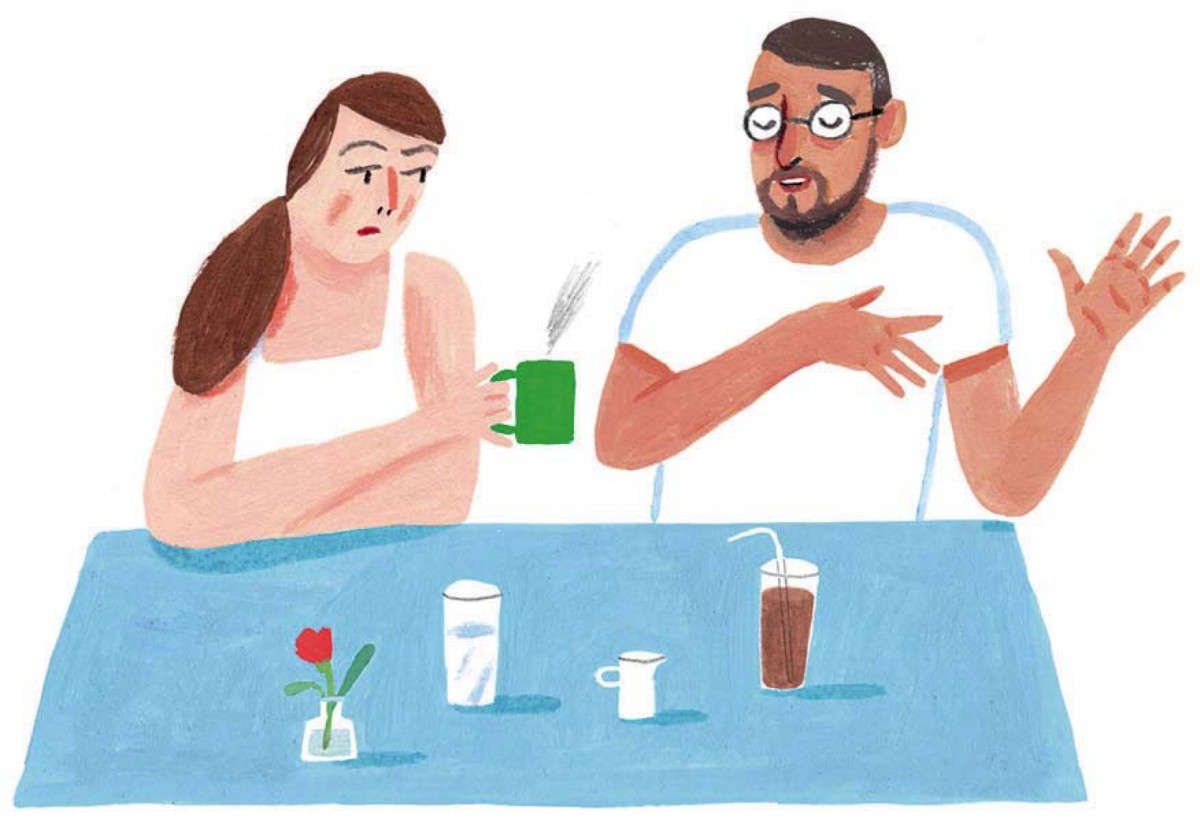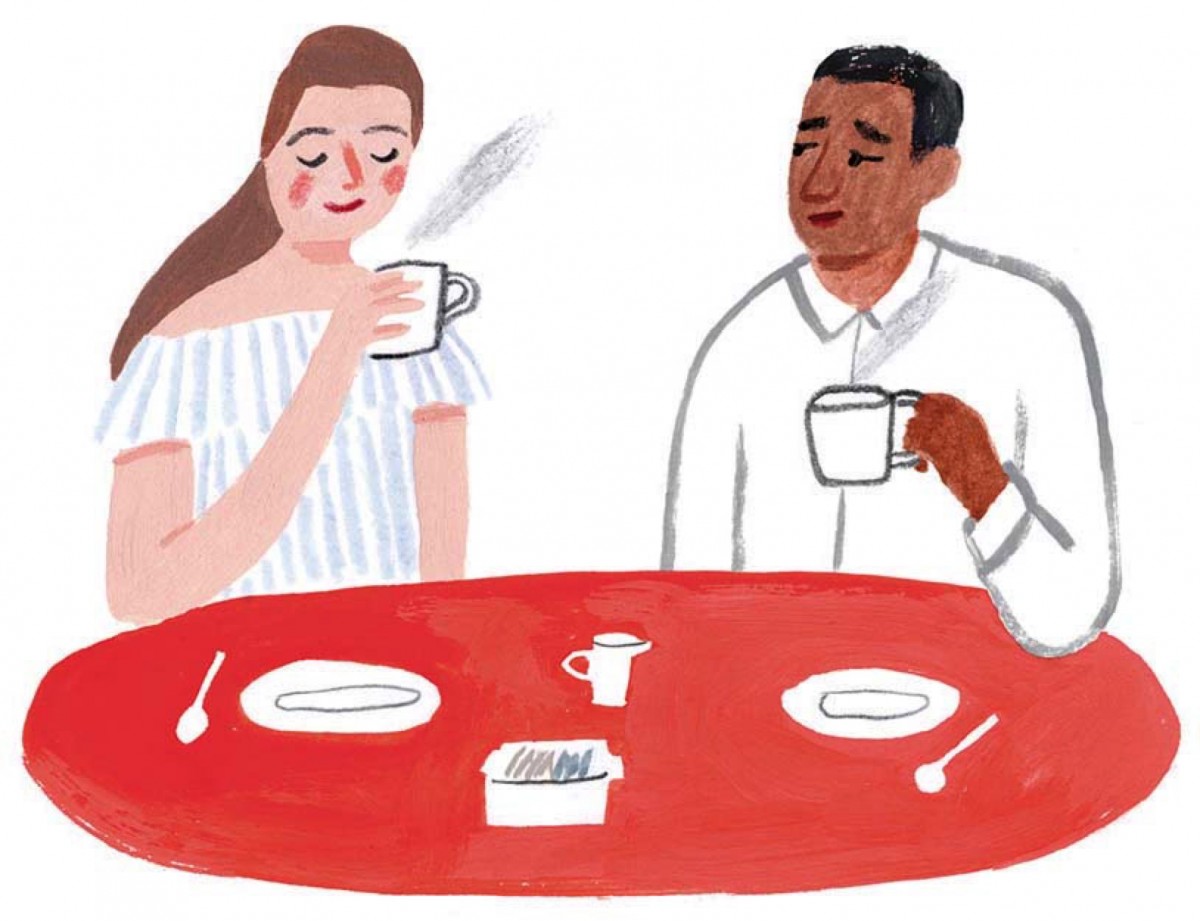I’m starting to feel like I’ve already squandered my prime friend-making years. An older acquaintance was recently telling me that it gets harder after college. There just won’t be this many people your age around ever again, she said, and smiled grimly. Or, if there are, they’ll all have full-time jobs and apartments far away from yours and plenty of friends already. At college everyone has so much time; everyone lives so close together; everyone has so much in common. I’m still close with my college friends, she added.
My Harvard social experience has consisted of a handful of very close friendships amid a truckload of dead-end acquaintanceships where neither of us was invested enough to make time for each other. Maybe we each felt a little guilty, but given all of our commitments, how were we supposed to fit each other in? In the face of the postcollegiate social void, I should probably be reaching out to as many people as possible to consolidate tenuous connections into durable relationships, but it’s not just me. It seems like everyone around here is guilty of repeatedly postponing plans until the acquaintanceship dies on the vine.
I don’t know if it’s my fault or Harvard’s, but I know this is true for many of us: at some point, maybe early sophomore year, our lives started to congeal around a routine. Whoever fit into that routine—whoever worked in the places you worked or ate meals at the times and in the places you did or lived in the same suite as you—got to be a part of your life. It was easier to let the other people go.
I met my best friend in January of my freshman year, when the two of us were newly in charge of putting on events for the College’s oldest literary magazine, The Harvard Advocate. This meant emailing a handful of fairly unknown poets, carrying chairs, purchasing snacks and (importantly) boxed wine, and doing the dishes after. This was how I got to know him—I would wash and he would dry, or vice versa. We learned to stretch our fingers deep enough into the tall glasses to get at the congealed red wine at the bottom with soapy sponges. We sang along to Fiona Apple and talked about our respective love-interests. The chromatin of the wine would leave a small stain on the yellow of the sponge. By March the sponge was uniformly pink and we were good friends.

Illustration by Rebecca Clarke
When I met him, I was still new to campus. I was still figuring out where I liked to do my school work and where I liked to hang out after it was done. The rhythms of my daily life were still malleable; they molded easily around my new friend’s habits, and his (firmly established over his three previous semesters) adjusted a bit to accommodate my preferences. During the subsequent two and a half years, our personal routines changed in tandem with one another: when we got sick of Café Gato Rojo, the preferred work venue of my freshman spring, we started to spend afternoons at the Darwin’s Ltd. on Mount Auburn Street instead, and by my friend’s senior spring (my junior spring), we were logging dozens of hours a week at Petsi Pies on Putnam Ave. Sometimes our routines got out of sync—he would spend a week working in Widener while I was hard at work on an installation in the Carpenter Center—but they always gravitated back together.
Rather than a particular café or a dining hall, his friendship became my home at school. I don’t think there was a single day between that March and this May, when he graduated, that we were both on campus and didn’t see each other. I always wound up inadvertently learning his course schedule, and people tended to assume we were secretly dating (though our affection for each other has always been strictly platonic). His presence—even after all the getting-to-know each other was gone, even after we’d talked our way through all possible topics of conversation into well-worn silence—was a comfort. I could always take shelter from solitude in that silence.
When, several weeks before my friend’s graduation, I learned I’d be spending this summer in Manhattan, I was apprehensive. “I have no friends there,” I told him. I imagined myself spending each day sitting silently in front of a desktop computer in some corporate cubicle and then each night sitting silently in front of a television in some empty summer sublet. “You’ll be fine,” he said. “Just make sure you reach out to people. If you forget to reach out to people, you’ll go nuts.”
I snapped back at him. He knew I hated reaching out to people. Here’s how “reaching out” seemed to work: you go on one coffee date and talk to each other, and then you go on another, and then you go on another. You “get to know” each other. The underlying principle of the coffee-date paradigm is that conversation can catalyze friendship, that knowledge of another person and intimacy are tied up in a chicken-and-egg loop of tangled causality. You learn random facts about each other until you magically feel close to one another.
I was scared of being alone, and even more scared of being lonely in constant company, cumulatively spending hundreds of hours in noisy subway cars pressed against other anonymous bodies, all of us going to and returning from dinners with acquaintances. I didn’t want artificial meals with people who would never be real parts of my life. I wanted familiar silences.
My friend moved to Europe shortly after graduating. We haven’t really spoken in about a month now. I’d always assumed that we’d long ago passed a certain threshold of closeness, perhaps measured in the number of hours we’d spent laughing and crying in each other’s company, that made our friendship immune to time and distance. I assumed we’d be the kind of people who would still be hanging out when we were 45 and it wouldn’t require reconnecting because we wouldn’t have lost touch yet. No one would ever have to say anything was “just like old times” because there would always be new times to appreciate instead.
Sometimes I text: “how are you?” and he responds. His texts bring me information about the work he is doing and the places he has been—the answers to my questions—but this isn’t what I want from them. This kind of sporadic text-based conversation was never our thing, and the responses feel distant. I guess that makes sense: he’s far away, and so am I, in a way. Maybe we will Skype each other sometime soon, but the dynamic will have changed: there will be a month to hear about, instead of an hour. There will be neither the comfortable silence of each of us hard at work, nor the almost audible energy of the frenetic conversations that punctuated those silences. Instead, we will catch up.
This loss of resolution—as if our relationship is an image file that must be compressed in order to travel long distances—terrifies me. In a low-res friendship, maybe you enjoy catching up, and Skype sessions are expressions of enduring affection. But those encounters might also be just an attempt to petrify the intimacy, to smooth over any grief. It feels like turning the fruit of our relationship into some kind of a jelly, a garnish for toast instead of a living thing.
I think I snapped at him when he told me to reach out because I felt (unreasonably) like he was supposed to do somethingto rescue me from my impending isolation. This summer felt like the prelude to my inevitable return to a campus where coffee dates would be once again imperative, and that, in turn, would be the prelude to my ejection into the colder real world, where those coffee dates would be harder to come by. I wanted him to tell me I could keep our friendship, exactly as is, the whole way.
Last fall, my mom and I drove my furniture up to Boston from Pittsburgh, my hometown. We picked up my friend in Philadelphia on the way, and the two of them chatted happily while I drove the last eight hours up to Cambridge. He helped us get my furniture up the stairs of my three-story walk-up, and then, after my mom set off on the long drive back, he and I posted up at an outdoor table at Shay’s on JFK Street to spend the rest of the afternoon talking about each other’s summers, parent-free. It felt like there was so much time to account for. That evening my apartment felt too new and too empty, so he came over and broke in the stove making us empanadas.

Illustration by Rebecca Clarke
This year I will get off the plane at Logan and put myself first on the Silver Line and then on the Red Line. My mom will meet me at my old apartment, days before my lease ends, and the two of us will lug my furniture down those same three flights and drive it to my new place. I’m sure she’ll come to Shay’s with me afterwards if I want, but eventually she’ll drive away, and I’ll be poised, all alone, at the start of my last year of college.
I’m a little bit scared, but also intrigued by how I can return to so familiar a place with so many familiar faces and find it uncanny, haunted by the lack of my friend’s familiar presence. He’s not the only one gone: most of us upperclassmen will be missing crucial companions. This is the way of college—an endless rotation of new people in and old people out. It’s not as if they leave and Harvard is the same old place for the rest of us. We will melt down the remnants of our lives here and recast them around the routines of the friends who will take their places.
This summer hasn’t been too bad. I bit the bullet and went on some coffee dates. Some of these meet-ups were dull, others were exciting, others comfortable. A few are starting to look like friendships, to accumulate long strings of text messages and rituals and terminologies and songs we both like and books we’ve told each other to read. None of them are durable yet or especially close, but I feel surrounded by a new set of companions, all of whom I want to be around, to share this city with, if not to know. We’re all in the same boat, turning to each other for familiarity and routine out here in a newer and realer world. For the past three years, none of these people seemed to fit into my life at Harvard, nor I into theirs, but maybe by the end of the summer we’ll be familiar enough to make space for each other.
That older acquaintance’s comments made me feel pressure to preemptively fill in the gap awaiting me after Harvard, and to pave over any improbable loneliness I might feel while still at college. It’s easy, faced with this kind of rhetoric, to conceptualize friendships as achievements, possessions to be collected and then hoarded permanently, and college as an especially fruitful collection venue.
Now I see friendship as a mode of experience, a way of engaging with a place. My friend’s and my relationship, relegated to the virtual recesses of our smartphones, will have to reinvent itself a little bit to survive. In turn, college was a particular kind of place with my friend around; it will be different without him. I’m going to return to a new and familiar Harvard full of newly familiar people, and then I will leave Harvard for an unfamiliar place full of unfamiliar people. Many of these strangers will become friends I want to keep around for a long time.









